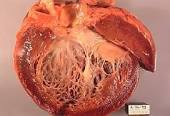
Diagnosed with Cancer? Your two greatest challenges are understanding cancer and understanding possible side effects from chemo and radiation. Knowledge is Power!
Learn about conventional, complementary, and integrative therapies.
Dealing with treatment side effects? Learn about evidence-based therapies to alleviate your symptoms.
Click the orange button to the right to learn more.
- You are here:
- Home »
- Blog »
- side effects ID and prevention »
- Pediatric, AYA Cardio Protection
Pediatric, AYA Cardio Protection

“Cancer Survivors are 15 times more likely to have heart failure and eight times more likely to have heart disease than the general population…”
While pediatric and AYA cancer survivors suffer from possible heart damage due to cardiotoxic chemotherapy for their entire lives, they are hardly the only cancer patients who should learn about cardio protection.
This list is what the linked article below lists as cardio protection guidelines. While I am sure this list is a good first step of cardio protective guidelines, I have added my own list of therapies that I have done since 2015.
- Children should be assessed at least once by a cardio-oncologist during treatment
- Dexrazoxane
- Electrocardiograms and troponin I levels within 48 hours of each immune checkpoint inhibitor dose to check for myocarditis.
- Children should be checked for hypertension within a month of starting a VEGF inhibitor,
- For those who receive treatment with an mTOR inhibitor, blood pressure, glucose levels, lipid profiles, and renal function should be checked every 6 months.
All cancer patients who are considering dexrazoxane therapy, as the guidelines suggest, should read the long list of possible side effects of this drug, linked below. Once again, conventional oncology recommends a drug with a long list of adverse events.
To this list of cardio protection guidelines I would add those evidence-based, non-toxic heart healthy therapies that I do for my own chemotherapy-induced cardiomyopathy.
- heart healthy lifestyle such as exercise, whole body hyperthermia, etc.
- heart healthy nutrition such as nuts, fruits, veggies, etc.
- heart health nutritional supplementation such as CoQ10, Omega-3 fatty acids, etc.
When I came across the article touting pediatric cardio protection guidelines, my heart jumped. Surely conventional oncology has focused all of their experience and knowledge on one of my own serious long-term side effects that will ensure others avoid my experience.
While I certainly advocate diagnostics such as echocardiograms and electrocardiograms early and often, I am saddened by oncology’s reliance on a therapy that will surely damage the cancer survivor.
Are you considering cardiotoxic chemotherapy or radiation? Would you like to learn more about evidence-based therapies shown to enhance heart health? Scroll down the page, post a question or comment and I will reply to you ASAP.
David Emerson
- Cancer Survivor
- Cancer Coach
- Director PeopleBearingCancer
First Guideline for Cardio protection in Children With Cancer
“Heart complications are the second leading cause of death among childhood cancer survivors, right after cancer recurrence. Survivors are 15 times more likely to have heart failure and eight times more likely to have heart disease than the general population…
“There was no defined approach for surveillance or follow up of pediatric patients during treatment despite new therapeutics having early heart complications such as:
- high blood pressure,
- abnormal heart beats,
- and heart failure…”
Drugs acting as inhibitors of VEGF, mTOR, proteasomal, kinases, and immune checkpoints all put children at risk for cardiovascular complications, the authors point out. Then, when these patients are adults, developing metabolic syndrome or kidney disease, and even pregnancy, increase the risk of cardiovascular complications still further…
Children should be assessed at least once by a cardio-oncologist during treatment, and testing should ideally include a 3-dimensional transthoracic echocardiogram, the authors advise…
Among scores of specific recommendations, the team made a unanimous recommendation for dexrazoxane,..
They also recommend electrocardiograms and troponin I levels within 48 hours of each immune checkpoint inhibitor dose to check for myocarditis. If myocarditis is suspected, the immunotherapy should be withheld.
In addition, children should be checked for hypertension within a month of starting a VEGF inhibitor, and for those who receive treatment with an mTOR inhibitor, blood pressure, glucose levels, lipid profiles, and renal function should be checked every 6 months.
Dexrazoxane
“Dexrazoxane, an FDA-approved cardioprotective drug, has been successfully used to ameliorate cardiac toxicity seen in anthracycline-based (e.g., doxorubicin, daunorubicin, epirubicin) chemotherapy recipients for cancer, mainly in advanced breast cancer patients, adult patients with soft tissue sarcomas, or small-cell lung cancer.[1][2]…
Dexrazoxane has also shown an indication in the prevention of surrounding tissue damage caused by extravasation of anthracyclines, which can occur upon administration of these chemotherapeutic drugs.[4]
However, dexrazoxane treatment does not completely eliminate the risk of cardiac toxicity induced by anthracyclines, so it is necessary to check on the patient’s cardiac function before and consistently during therapy to analyze the left ventricular ejection fraction (LVEF)…
Adverse Effects
The common side effects that culminate from dexrazoxane use include dose-limiting myelotoxicity (neutropenia, leukopenia, granulocytopenia, and thrombocytopenia), which is very similar to the side-effect profile of anthracyclines.
It is, therefore, challenging to distinguish the adverse effects seen with dexrazoxane use from those of anthracycline chemotherapy. Other adverse effects include:
- nausea/vomiting,
- increased renal excretion of iron and zinc,
- hair loss,
- mucositis,
- inconsistent increases in liver enzymes (alanine aminotransferase/aspartate aminotransferase),
- reactions at the injection site such as pain, superficial phlebitis, which led to the recommendation that dexrazoxane should be administered via a large vein.[4][11][12]
- Embryo-fetal toxicity and male infertility were also noted in studies conducted on mice.
Recently, there have been concerns about the risk, particularly in pediatric patients, with long-term effects of dexrazoxane, who continuously received doses to inhibit cardiotoxicity. Although very sporadic, the incidence of other primary malignancies (myelodysplastic syndrome and acute myeloid leukemia) in the patient group treated with dexrazoxane manifested a threefold increase compared with controls, which researchers documented in two randomized studies.[13][14]…


